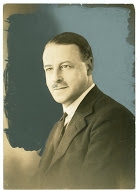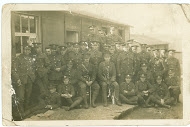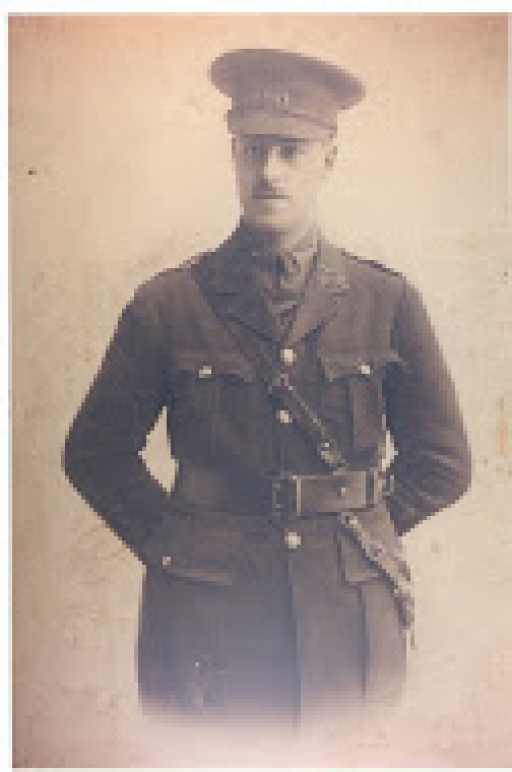An extraordinary love story between a heroic British Captain and a nurse who believed he was a German spy has been uncovered by students looking back into First World war archives.
Students at University of Leeds, in the UK, discovered the romance when researching through papers at the University’s vast Liddle Collection.
The story revolves round Captain Harry Oldham who served on the Western Front as a company commander in the 9th Battalion West Yorkshire Regiment.
The papers reveal how he used his ability to speak German to save the life of a wounded enemy soldier.
But months later it almost got him condemned as a German spy when he was wounded himself.
Spared
It was after the third battle of Ypres in 1917 and he was on the operating theatre in a York military hospital.
He had been badly injured in the stomach and lay for a day and a half in a shell hole with his colleagues dying around him. At one point a German patrol stumbled across him but spared him out of mercy.
After being rescued he ended up in a York military hospital where he began muttering in German on the operating table.
Oldham describes how “a young Irish nurse, a VAD, announced that here was clearly a German spy who should not be allowed to live – advice fortunately ignored by the excellent surgeon.”
Golden wedding
Not only did he survive he went on to marry the nurse who wanted him to die. In a happy postscript in 1969 he wrote: “A few months ago that seemingly murderous-minded Irish nurse and I celebrated our Golden wedding.”

Harry Oldham in later life. He emigrated with his family to Canada.
Captain Oldham married Heather Orloff in 1919. The couple had three children and a 54 year long marriage. They ended up emigrating with Oldham eventually managing the British Trade Centre in Vancouver and being made a CBE.
He died in 1973 and Heather died five years later.
Among the items held in the University’s vast Liddle Collection of First World War papers is an account by Oldham of his near-fatal wounding on the notorious Passchendaele Ridge in October 1917.
Writing half a century later, he describes a dawn attack prompted by a break in the weather: “All was mud and desolation, and there the depths of human misery, suicidal futility, and despair were surely plumbed. The casualties were frightful; indeed the dead seemed better off than the living. Oh what a lovely war.”
Ordered to attack in “vile and impossible conditions … up to our knees and backsides in mud”, he describes the assault as a ghastly failure.
Of the 13 officers who went over the top, nine were killed in that attack and four were badly wounded – including Oldham, who received serious wound to the abdomen. He spent a day and half lying in a mud-filled shell hole with five of his men, all of whom died.

Harry Oldham with his men. He is the leftmost officer with a cane.
At one point, a group of German soldiers stumbled across the British officer. One was about to bayonet Oldham when he was stopped by a superior – “probably thinking it was unnecessary, as I imagine I wasn’t looking all that good.”
Stretcher bearers with white flags eventually brought him in with other survivors of the battle.
Oldham’s fascinating story was uncovered in the University of Leeds archives by five undergraduates researching what soldiers at the front missed about home.
Bayonet
Dominic Smithers, a fourth year history student, said: “What’s equally amazing about Harry Oldham’s story is that he also relates how – in an earlier incident that almost mirrors what happened to him in that shell hole – he prevented his company sergeant major from bayoneting a gravely wounded 17-year-old German they came across after heavy fighting on the Ancre.
“Oldham relates how, being fairly fluent in German, he talked to the teenager and helped him as best as he could.”
The officer, himself only 23 at the time, describes how he later made enquiries at the casualty clearing station and was told the soldier had a reasonably good chance of living, writing: “I hope he did. I cannot help but feel … that some significance, call it Karmic significance, could be attached to the fact the young German soldier had been saved by me from being bayoneted, and that I, with an identical wound, had been similarly saved from the same fate by a German Unteroffizier [NCO].”
The research carried out by Dominic and his fellow students Bryony Evans, Emma Wray, Alex Key and Noga Hill, focuses on the idea of perceptions and realities of war and how their loved ones at home viewed war.
The middle-aged Harry Oldham’s bleak recollections of his war experiences are very different to the bluff letters he sent home at the time.
Heroes
Dominic added: “This particular story really demonstrated to us how important it is to remember what soldiers such as Harry Oldham sacrificed for their country.
“By uncovering such fascinating stories and bringing them to the attention of a new generation we have tried to spark an interest and keep the memory of these heroes alive.”
The University of Leeds launched its Legacies of War research project four years ago in anticipation of the 1914-18 war’s Centenary.
Posted by Mike Swain, Centenary News.
Pictures © University of Leeds
© Centenary Digital Ltd & Author
